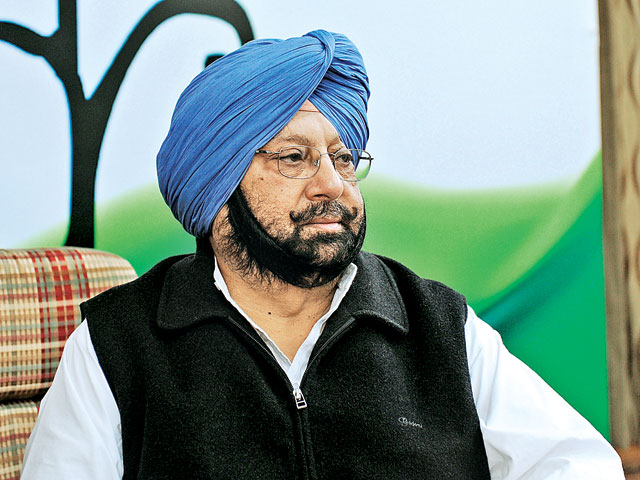

Chandigarh: With his own party disrupting parliament during the entire monsoon session, Congress Deputy Leader in the Lok Sabha Amarinder Singh yesterday sounded a near discordant note, expressing displeasure over the delay in the introduction and passage of the Goods and Services Tax (GST) bill.
The move by Amarinder Singh is likely to cause discomfort to the Congress party that has made it a precondition that External Affairs Minister Sushma Swaraj and Rajasthan CM Vasundhara Raje over the Lalit Modi controversy.
The party continued its protests in the Lok Sabha and the Rajya Sabha all through the just concluded monsoon session.
“Whatever the reasons and the circumstances have been during the monsoon session, the GST should have been allowed to be introduced in parliament to facilitate the way for its eventual passage,” Amarinder Singh said
In a statement issued here, he added that GST was important for the overall economic growth of the country.
Amarinder Singh did not attend parliament and did not join the protests by Congress members led by party president Sonia Gandhi and vice president Rahul Gandhi.
He, in fact, even said that the protests in parliament were not as important as his rallies in Punjab were his immediate priority.
The former chief minister said that states like Punjab, which is reeling under a consolidated debt burden of over Rs1.25 lakh crore, were the worst sufferers due to the delays in the passage of the Goods and Services Tax (GST) bill in parliament.
“Punjab does not have enough money even to pay the monthly salaries and service the debts it owes.
It would have provided relief to both to the state as well as its trade and industry which is under acute financial stress and is fast winding up,” he said.
“The introduction of the GST, which is originally the brainchild of the Congress, could have proved mutually beneficial for both the industry as well as the state as on the one hand it would have streamlined and uniformed the tax regime and on the other hand would have generated additional revenue and resources for the state,” he added.
IANS




